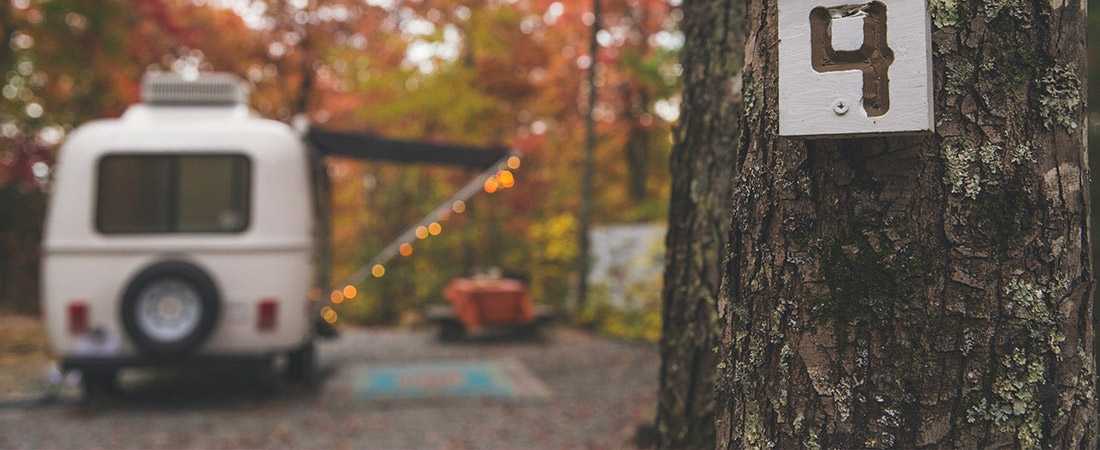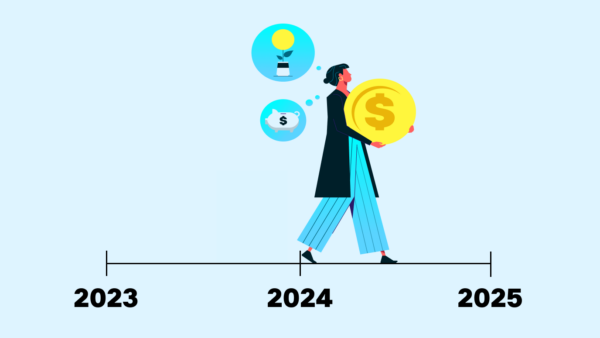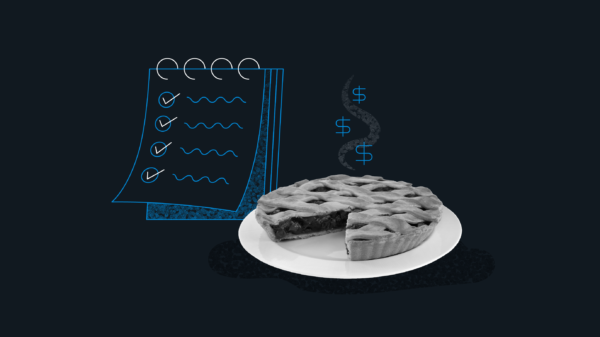Sep 18, 2017
Would You Live in an RV to Pay Off Your Student Debt? This Couple Did It
Read how this couple took downsizing to the next level.

How far would you go to pay off your student debt? This couple took downsizing to the next level.
Twenty-somethings Zack and Jen McCullock decided they didn’t want to be slaves to debt like so many others. When they got married in 2014, they had a combined $50,000 in student loans.
Zack and Jen are far from alone. Americans owe a staggering $1.3 trillion in student loans, with a median debt of $17,000. As a result, many people struggle with monthly minimum payments for decades while working full-time jobs.
“It seems so crazy when you think about all that debt you accumulate when you’re so young,” Zack says. “We think going to college and accruing student loans is how you get ahead, but when you’re so young, you don’t really have the context for understanding how long it will take to pay off.”
Neither Zack or Jen made a huge amount of money. After earning liberal arts degrees in Oklahoma, they both worked at non-profits, Jen at a re-entry program for incarcerated individuals, and Zach at an international NGO which focused on clean water in developing countries.
At first, the two had planned to make just the minimum payments toward their debt, about $400 per month, but they calculated it would have taken them 10 to 12 years to pay off what they owed.
So they decided to ditch their expensive apartment life and move into a camper. In the process, they downsized their lives significantly and realized what they could do without.
As a result, they reallocated their saved money toward their debts and wound up paying everything off within a year.
Here’s how they did it:
Overhauling, downsizing, rethinking
First, Jen and Zack zeroed in on a thirty-one-foot long, lightweight Trail Manor 3214, a pop-up style camper with a hard shell exterior. It had basic necessities like a stove, toilet, and shower.
They bought it for just $3,400 and spent another $500 fixing it up. They painted the walls white, changed the curtains, tore out old cabinets, and added a small TV. Then they built a deck outside where they put patio furniture and a grill.
They had negotiated with Zach’s parents to park it on property just outside Oklahoma City, in exchange for $75 a month in rent. This meant a savings from the $700 they were paying in rent before.
“In the camper, the furthest we could be from one another was literally 5 to 8 steps.”
Then they got to work downsizing the rest of their lives.
They got rid of lamps, old furniture, and spare clothing, donating numerous bags to Goodwill, while figuring out the bare minimum of what they’d need. They kept other essentials in a storage unit, including a couple boxes of clothes they’d switch out with the seasons.
Then they slashed their other monthly bills, negotiating for cheap renters insurance, cancelling subscriptions for Audible, Hulu and Netflix. They stopped using Amazon to order books, and instead borrowed them from the local library.
The McCullocks also reassessed their food bill. Zack and Jen had loved buying groceries from Whole Foods and Sprouts, but switched over to the discount grocery store Aldi, while purchasing home goods at Walmart. They also stopped eating out in restaurants.
Pretty quickly, their downsizing started paying a dividend. The couple were soon able to put $3,000 to $4,000 per month toward their debt.
Growing together in a tight space
For Jen and Zack, there were a lot adjustments to make.
“The biggest change from apartment life was having little to no space for alone time,” Zack said. “In the camper, the furthest we could be from one another was literally 5 to 8 steps. We found ways to re-charge and spent a lot more time outside working or spending time around town in coffee shops or in bookstores.”
They also had to deal with annoyances like running out of propane just before dinner, a broken air conditioner in 90 degree heat, or the pilot light going out in the rain. The winter months were especially difficult.
The couple didn’t leave the furnace on all day while they were at work, so they often came home to a cold camper that took a long time to warm up. They also survived a near hit from a tornado.
There were also good parts to living in the RV.
“I really loved simple living,” Jen says. “Downsizing was a great exercise for me.”
Zack also said a lot of the adjustment was positive.
“It was our second year of marriage so it helped us grow closer and understand each other.”
Living small, big results
At the end of a year, the couple was debt free. And after all the sweat equity they poured into their RV, they sold it for a whopping $10,000 in 2016. They took a celebratory trip to Banff, Canada, and then put the rest into a retirement savings account.
Now the couple is planning the next phase of their lives. Zack is finishing up graduate school–which he’s paying for without loans. They’re back to apartment living, and strategizing about ways to work and travel overseas. And they’ve started a website devoted to helping other young people take control of their financial lives.
“Our big goal is to build an online community of people who think life is more than just about things, it’s about freedom,” Zack says.
Related Articles

The 2024 Financial Checklist: A Guide to a Confident New Year

9 Ways to Celebrate Financial Wellness Month

Budgeting for Young Adults: 19 Money Saving Tips for 2024

The Best Personal Finance Books on Money Skills, Investing, and Creating Your Best Life for 2024

What Is a Financial Plan? A Beginner’s Guide to Financial Planning

How to Save Money: 45 Best Ways to Grow Your Savings




